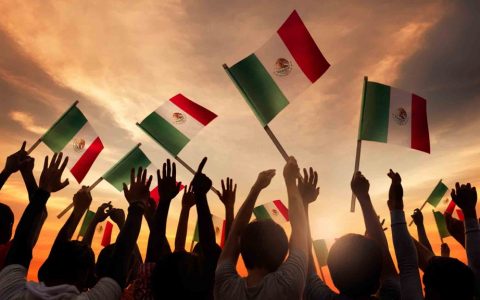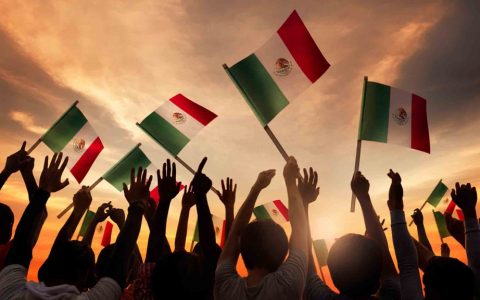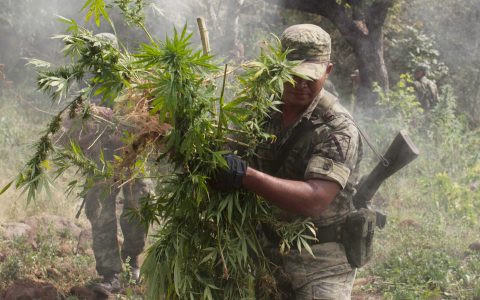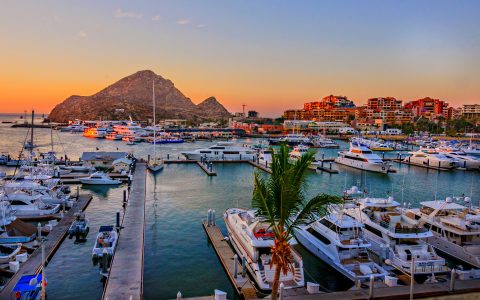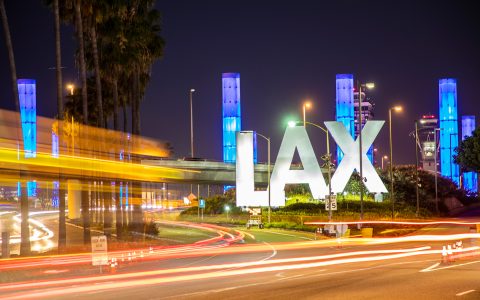Mexico took a huge step forward on cannabis this week when the nation’s Supreme Court issued two rulings that effectively ended the country’s ban on recreational cannabis use.
The change leaves Mexico in a strange spot. Prohibition is technically over, yet nothing has replaced it. Lawmakers are expected to update the nation’s drug laws in coming months as a result of the rulings, but it’s not clear whether they’ll welcome wider legalization or take a more restrictive approach.
For now, here’s how the two rulings effect cannabis in Mexico.
Is Cannabis Legal in Mexico Now?
Not exactly. Mexico’s Supreme Court issued a pair of rulings affirming an adult’s right to use cannabis recreationally. The rulings mean Mexico’s current ban on cannabis consumption is now moot, but that’s not quite the same as legalization.
The rulings effectively allow personal cultivation, possession, consumption, and sharing of cannabis by adults.
The laws on the book don’t change as a result of the rulings, but they’re basically unenforceable. Anyone brought to court on charges of consuming cannabis recreationally can point to these rulings and demand that their charges be thrown out.
Formal legalization—actually changing the now-unconstitutional laws—is a matter for Mexico’s Congress. “The Supreme Court has done its job,” the court’s director general, Lisa Sanchez, said in a statement after the rulings. “The responsibility for issuing the corresponding regulation falls on congress.”
So What Actually Changes?
Experts assessing the court rulings have said that while the laws haven’t yet changed, the rulings effectively allow personal cultivation, possession, consumption, and sharing of cannabis by adults.
Maybe don’t be too bold, though. Law enforcement officers could still arrest—and even, theoretically, prosecute—people under the country’s existing laws against cannabis use, but defendants could simply argue in court that those laws have been declared unconstitutional and can’t be enforced.
Will Mexico Legalize as a Result of the Rulings?
There’s good reason to be optimistic. In late October, members of President-elect Andrés Manuel López Obrador’s cabinet took a trip to Canada to discuss legalization with officials in that country, which launched legal cannabis sales nationwide on Oct. 17.
Lawmakers in Mexico now have 90 days to update the country’s drug laws to conform with the Supreme Court rulings, but it’s not yet clear what action they’ll take.
Where Can I Buy Cannabis in Mexico?
You can’t—at least not legally. While the Supreme Court ordered that the individuals in the two cases be given authorization to consume cannabis, the court also said not to commercialize it.
Mexico’s lawmakers could still legalize cannabis sales, either when the revisit the nation’s drug laws in coming months or as a separate action, but nothing in the court’s recent rulings allow for retail stores.
Can Tourists Freely Enjoy Cannabis in Mexico?
We wouldn’t advise it. At least not yet. As previously mentioned, Mexico’s anti-cannabis laws remain on the books. A Mexican citizen may have the time and resources to successfully fight a cannabis possession charge, but a visitor from the US or Canada probably does not. And it sometimes takes quite a while for a legal technicality like this to make its way down to the level of street cops.
It’s a momentous legal decision, but don’t press your luck.
What About Other Drugs?
The court’s ruling applies to cannabis—and only cannabis.
How Did This Happen?
Good question. In Mexico, when the Supreme Court rules the same way five times on a given topic, that ruling becomes binding precedent on the nation’s courts. This week’s two rulings come after three similar ones between 2015 and 2017.
Note that the Supreme Court ruled Mexico’s cannabis ban interfered with the “right to the free development of the personality.” That phrase is key to how lawyers made their case to the Supreme Court.
What the Heck Is ‘Free Development of the Personality’?
The right to “free development of personality” is a constitutional doctrine that incorporates a whole spectrum of personal autonomy. In Mexico, it’s an idea that’s both nebulous and legally powerful.
Focusing on the use of cannabis as an aspect of that right was a strategy “different from the overall legalization debate [in Mexico], which focuses on drug-war death tolls and disappearances,” Andrés Aguinaco, one of the lawyers involved in the effort to overturn prohibition, told The Atlantic in 2015. Instead, “we’re arguing that the government is infringing on the constitutional doctrine of the free development of personality.”
As the Mexican Society for Responsible and Tolerant Consumption, of which Aguicano is a member, argued in a past court document, “The imposition of a single standard of healthy living is not admissible in a liberal state, which bases its existence on the recognition of human uniqueness and independence.”
Cannabis is a personal choice, the group argues—a way to grow, experience new things, and differentiate themselves from society. And Mexico’s constitution protects an individual’s right to be unique and independent.
Worth noting: The right to the “free development of personality” also appears in the United Nations’ Universal Declaration of Human Rights. So in theory, it’s one we’re all entitled to.


